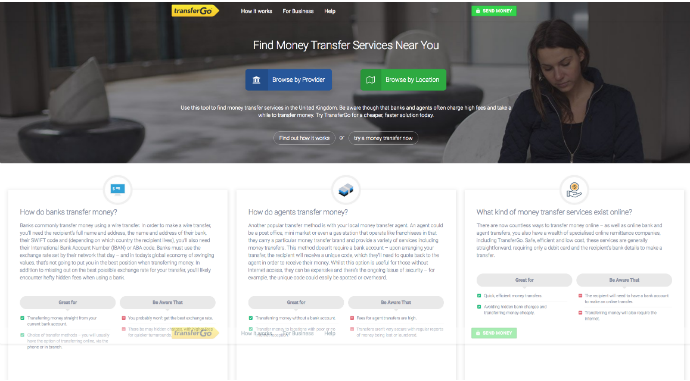If you run a small business in the UK, you’ll definitely have a lot of things to think about. From ensuring you get paid on time to making sure your suppliers don’t leave you high and dry, managing money is a pressing and important concern. And if you’re planning to move that business abroad due to a relocation, you’ll need to add start-up costs, foreign exchange transactions and more into the list of things to consider.
This guide won’t focus on the strategic or commercial decisions you’ll have to make when moving your small business abroad, such as demand or market research. That’s a topic for another guide and one that’s best written by experts in other fields. But it will help you to get a handle on your finances when paying across borders.
Opening a bank account
A business bank account is a good idea even in Britain – and even if you run just a micro business. Not only will it help you manage your cash flow and keep your personal spending separate, it will also mean you won’t have a headache when it comes to working out how much you’ve earned for tax recording purposes. Depending on where you move to, you might have an easier or harder experience opening a small business bank account: some countries, such as Singapore or Hong Kong, are geared up to small businesses, while others aren’t. Doing your research online is wise, and if language is a barrier, it may be worth paying a translator as a one-off to help you get this crucial piece of the puzzle in place.
Big operating costs
Whatever sort of business you run, you’ll need some capital at you at some stage or another. If you need premises, for example, your first few rent payments may need to be paid for by a cross border payment. And even if you run your business from your laptop, sooner or later you’ll need to spend on a new one. Funding your foreign business bank account from your personal British one could incur high costs, as it’s classed as an international money transfer even if you actually institute the transaction from a physical location in the foreign country in which you live. For that reason, reading reviews and shopping around for a low-fee provider is a smart move.
Foreign exchange rates
And don’t forget that foreign exchange rates can also pose problems as well. Say you make a significant profit on some client work in the local currency, and you decide to cash it out into pounds in order to service some debt back home – perhaps on a mortgage. You’ll have to strike the time correctly: if the exchange rate isn’t in your favour, it may be better to hold it in your local business bank account for as long as possible before making the change.
If you run a small firm, then, don’t get caught out by problems like these. Use this guide to help you make sure you can get your cash across borders safely and securely and help keep your business afloat. Check out more guides about business transactions across borders here.









